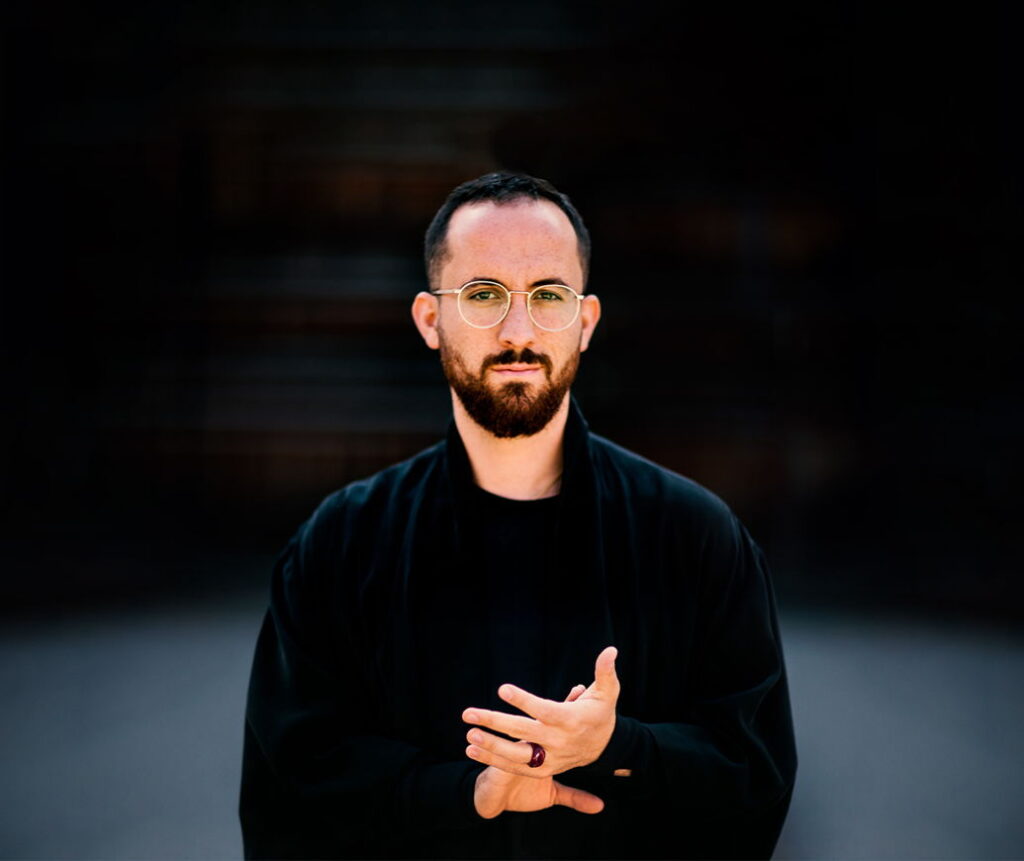
On Sunday evening as the 95th Annual Academy Awards were underway in Hollywood, the Russian-born German pianist Igor Levit performed a recital of intense artistic expression featuring the last three of Beethoven’s 32 piano sonatas before a crowd at Walt Disney Concert Hall obviously more interested in great music than film awards. And they were treated to an unforgettable evening.
To appreciate Beethoven’s last three sonatas (the Op. 109 in in E major, the Op. 110 in A-flat major, and the Op. 111 in C minor), composed close to the end of Beethoven’s life, they must be considered in the context of Beethoven’s overall health and state of mind. Beethoven was already completely deaf and had suffered a series of illnesses for many years. He also had family and financial problems on and off for years. In that light, these sonatas are even more of a wonder as they, like the last sonatas of Schubert at the very end of his life when he was also suffering, are intimate to the point of heartbreaking (for example, the Adagio ma non troppo of the Op. 110.)
There are also many surprising moments of serenity than what matters of the practical world would suggest. And some of the movements contain such simple melodies, for example, the almost fantasia-like third movement of the Op. 109 with the lonely, wistful voice that opens and closes it, the first and third movements of the Op. 110, and the second movement of the Op. 111, which itself is a masterpiece within a masterpiece with moments of serene, almost otherworldly beauty with which the movement begins and ends, and the almost jazz-like variations in between.
That’s not to say that these sonatas don’t still pack a Beethoven punch, as in the second movement of the Op. 110 and the first movement of the Op. 111, the latter of which could be seen as Beethoven’s last attempt to raise his fist at the god who allowed him to go deaf.
Taken together, the last three piano sonatas show Beethoven moving away from standard forms, not only of the sonata, but of his own compositional style, pushing the boundaries of expression on the piano.
Levit’s performance was transformative for the listener. He seemed to get into the soul of Beethoven and show it to the audience. He brought new urgency to these great works, especially in the more intimate sections. In the more excited parts, Levit’s legs could be seen moving out from the bench, and at times his left hand would rise as the right hand played, as if by some spirit waiting for its appropriate placement back on the keyboard.
Levit put some forethought into the programming of these sonatas. First, there was no intermission. He played the Op. 109 and Op. 110 without a break and only stood for applause at the resounding A-flat major conclusion of the Op. 110. Second, there was no encore despite the audience bringing him back for several curtain calls amidst screaming and cheering because, after all, nothing could follow such inspired performances of these great works. In fact, it would have been even more appropriate if he had just walked off stage to silence and allowed the audience to go home still reeling from the emotional impact of his performance.
Finally, this reviewer would like to thank the Academy — because traffic to and from downtown LA was much lighter for a Sunday evening than it usually is.
—Henry Schlinger, Culture Spot LA
Photo of Igor Levit courtesy of LA Phil





